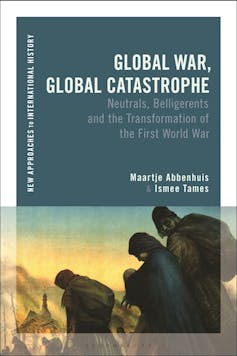What does it mean to be 'neutral' over Ukraine – and what responsibilities come with it?
- Written by Maartje Abbenhuis, Professor of History, University of Auckland

There’s a popular cartoon by Tom Toro[1] that’s been doing the social media rounds since 2012, in which two historians sit in a book-lined library as one complains:
Those who don’t study history are doomed to repeat it. Yet those who do study history are doomed to stand by helplessly while everyone else repeats it.
As a historian, I don’t much subscribe to the histoire se répète (history repeats itself) school of thought. No two moments are ever “the same”. Context changes everything – and the complexities of context are as important to understanding an event as the potential similarities with another moment in time.
I find many of the historical analogies being bandied about over the war in Ukraine banal. There is nothing to be gained from equating Putin with Hitler or likening Russia’s invasion of Ukraine with Germany’s invasion of Poland in 1939.
But what is useful in studying past wars is that they help us understand what aspects of a current crisis might be worth asking critical questions about.
In that sense, Toro’s cartoon is apposite, especially when it comes to interrogating our collective responsibility for the war in Ukraine and its victims. Is watching in horror as the war unfolds all we can do? What responsibilities do we have as non-belligerent “neutrals”?
Neutrals and non-belligerents
I’ve spent much of my academic career studying international systems and great power diplomacy, particularly in time of war. I’ve written several books about neutrality, peacemaking and avoiding war. My most recent (co-authored) title, Global War, Global Catastrophe[2], integrates the history of neutrals and non-belligerents into the global history of the first world war.

















